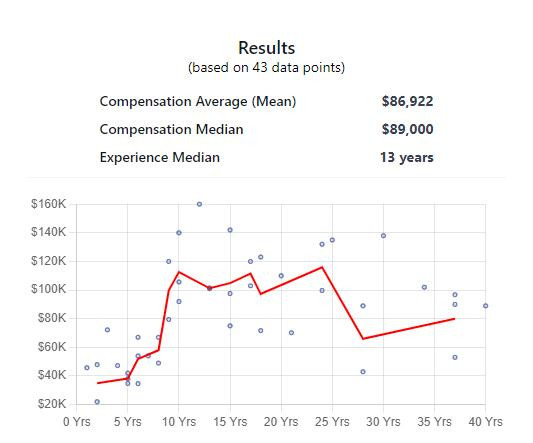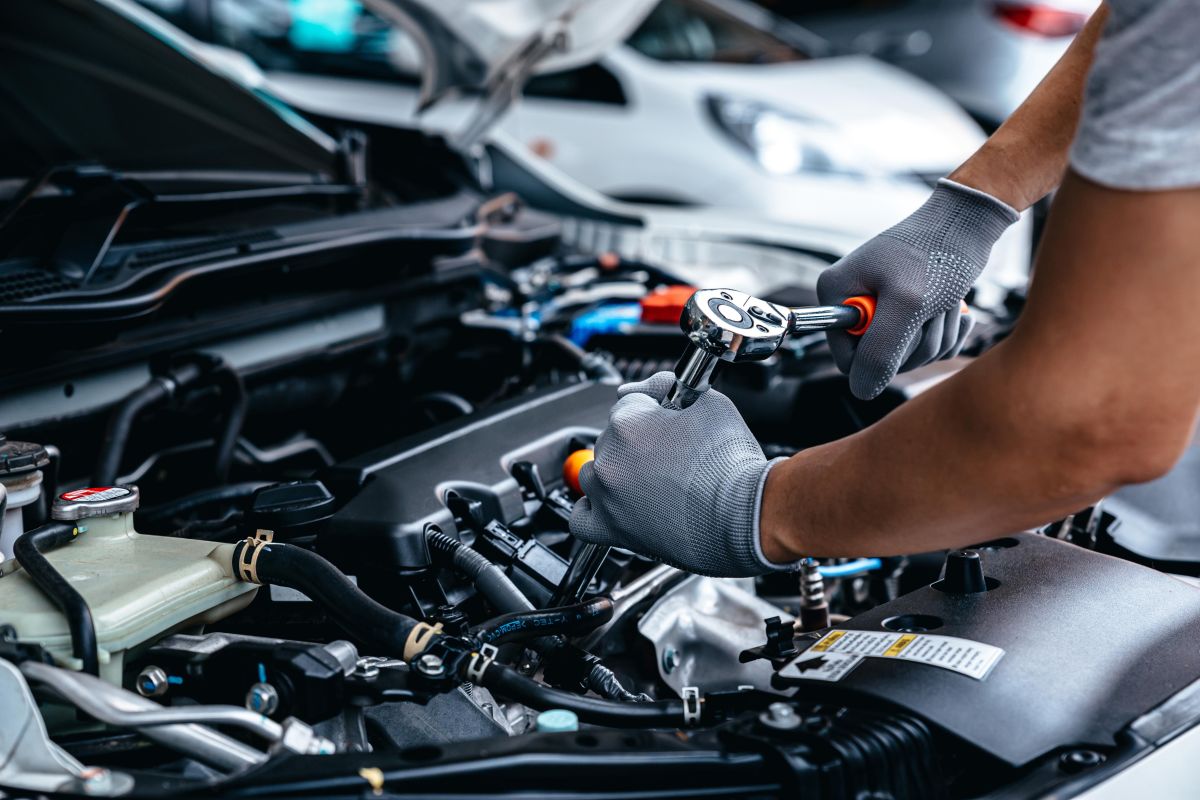A new survey conducted by WrenchWay found the average collision repair technician makes far more than the U.S. Bureau of Labor Statistics (BLS) reports, but more data is needed to be able to definitively present that positive information to young people considering a career in the industry.
WrenchWay co-founders Jay Goninen and Mark Wilson presented the results from their 2024 Technician Pay survey, which gathered data on pay and benefits from technicians across the country, in a Zoom webinar March 26: "Is BLS Data a Bunch of BS?"
According to the BLS, the average pay of an automotive technician is $46,970 per year, or $22.58 per hour, and the average pay for diesel technicians is $54,360 per year, or $26.14 per hour. The agency also cites the highest 10% earning around $75,000.
Goninen and Wilson said they already knew from the more than 1,000 shops on WrenchWay and countless others they work with that the data is simply not accurate.
 Collision repair-specific results in the Automotive and Diesel Technician Compensation Tool.
Collision repair-specific results in the Automotive and Diesel Technician Compensation Tool.
Their brief, self-reported survey has been completed by about 3,000 technicians so far, which were broken down into four industry categories: automotive, diesel, collision and school, which covers high school and college instructors.
The data shows the mean salary for collision repair technicians was about $87,000 per year, and the average was $89,000.
However, of those 3,000 responses, only 43 came from collision repair technicians, with a median experience of 13 years.
"We were light on data for the collision side, but hopefully you guys can help us get more," Wilson said.
The survey results are available for all to see via the Automotive and Diesel Technician Compensation Tool at wrenchway.com/pay. Users can filter the results by industry category, shop type, ZIP code and radius, and years of experience in the industry.
That is also where technicians can continue to submit their own pay data, which Wilson and Goninen encouraged everyone to do. They also asked technicians and managers to invite friends, employees and coworkers to fill out the seven-question survey.
WrenchWay vs. BLS Methods
Wilson said the problem with the BLS statistics is that it groups so many careers under "automotive technician," from an entry-level employee at a quick lube shop to a master technician with 40 years of experience.
BLS data also figures out annual salaries by simply multiplying hourly rates by 2,080 hours a year, but that doesn't take into account those who work more than 40 hours per week, so a lot of technicians make more in a year than their hourly wage would indicate.
"That method just doesn't work in our industry," Wilson said.
The result is an average pay that doesn't look appealing to young people considering a career to pursue.
"The problem is a high school student shows interest, they look at salary data from BLS and it’s good, but not great," Goninen said. "There's a lot of training to keep up with and the student has to pay for their own tools. It's all false except the tool part. There are some really competitive salaries."
Goninen and Wilson acknowledged the fact the responses largely came from experienced technicians, which skewed the average salary numbers higher than those for entry-level technicians with less than three years of work experience.
"A lot of people want to see the industry promoted as a great career," Wilson said to explain why longtime technicians seemed to be more willing to participate.
Goninen said going in, they had been a little concerned only entry-level technicians would respond, which would not show the long-term earning potential.
"We want to have realistic data," Goninen continued. "We don’t want to over emphasize the beginning salary, because it's hard to compete with Amazon and others offering bigger starting salaries, but we can give them hope, that maybe if I can stay in this industry, I can have a very successful career."
Automotive, Diesel and Instructor Average Salaries
Looking at the rest of the survey results, a large majority -- about two-thirds -- of all respondents said they were automotive technicians. They reported a mean experience level of 18 years, a mean salary of just over $89,000 and a median of $83,000.
Wilson said setting the results to show auto techs with zero to three years of experience returned a mean salary of $49,173, about what he expected. There were not enough collision repair respondents with the same amount of experience to generate a result.
The automotive technician data can be further broken down into those working for dealerships, either domestic or import brands; independent shops servicing all makes and models or specializing in one; fleet; service and tire chains; quick change lube shops; mobile services; or those servicing RVs or EVs.
Diesel technicians were the next-largest segment, with 644 respondents with a mean experience of 13 years, a mean salary of $83,519 and median of $77,509. They could indicate if they worked in a shop, or on construction or agricultural equipment.
The "school" category had a handful more respondents than collision repair -- 50 respondents with a mean experience of 30 years reported a mean salary of $79,013 and median of $77,750.
More Data Needed from Collision Repair Technicians
In a follow up call, Goninen said WrenchWay is still developing its relationship with the collision repair industry. The aim is to gather enough data from technicians to be able to break it down into salaries for working in dealerships vs. independent shops and other subsets, similar to the automotive technician and diesel categories.
"We're still very much growing the collision side of this," Goninen said. "It's very early in the process."
Goninen said collision repair shops can join WrenchWay to post jobs, be searchable for technicians looking for jobs, and connect with local schools.
"The job board is like Zillow is to housing," Goninen said. "A technician can do their due diligence on an employer, and an employer has a chance to 'sell' themselves to new employees."
The School Connect program allows automotive education programs at high schools and post-secondary schools to ask for what they need to effectively teach their students -- be it speakers to come to class, new equipment, or shops to place their students in apprenticeships, internships and job shadows.
For instance, one school posted to the School Connect board looking for a new brake lathe, which was donated before the end of the week by a local car dealership.
"It helps grow that program," Goninen said. "So many schools have significant budget restrictions that lead to the program being cut. They need proper equipment and tools. The [donating] shop gets to build a relationship with that school beyond a twice-a-year advisory committee meeting."
"I think job shadows will be critical as we move forward," Goninen added.
For more information, visit wrenchway.com.
To hear or read more, check out two previous episodes of The Collision Vision podcast Goninen appeared joined to talk about the technician shortage and WrenchWay's pay survey.











Abby Andrews